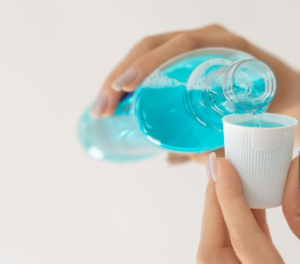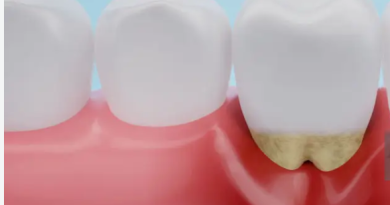How to Prevent Cavities: 7 Dentist-Backed Tips
Tooth decay is one of the most common chronic health problems in the United States, affecting people of all ages and backgrounds. According to the Centers for Disease Control and Prevention, nearly one in four adults ages 20 to 64 has at least one untreated cavity, and about 46% of children ages 2 to 19 have experienced dental caries in their primary or permanent teeth. Left unchecked, cavities can lead to pain, infection, and even tooth loss, impacting everything from your ability to eat and speak comfortably to your overall confidence and well-being.
This post is for you if you want to protect your smile, whether you’re a parent looking out for your children’s dental health, a busy professional aiming to avoid costly dental procedures, or simply someone who wants to enjoy a healthier, cavity-free life. In the sections ahead, we’ll explain why cavity prevention is so important, then share seven dentist-backed, practical tips to help you keep your teeth strong and healthy for years.
1. Brush Your Teeth Properly and Consistently
Brushing is your first line of defense against cavities. Dentists recommend brushing at least twice daily, for two minutes each time, using a fluoride toothpaste. Fluoride, a key ingredient in most toothpaste, helps remineralize enamel and makes it more resistant to acid attacks from cavity-causing bacteria. Make sure to clean all surfaces—every tooth’s front, back, and chewing sides.
Electric toothbrushes can be especially effective at removing plaque, but a manual brush works well with proper technique. Replace your toothbrush every three to four months or sooner if the bristles are frayed.

2. Floss Daily to Clean Between Teeth
Brushing alone can’t reach the tight spaces between your teeth where food particles and plaque accumulate. Flossing daily removes debris and bacteria from these areas, helping prevent cavities from forming in spots your toothbrush can’t reach.
Use about 18 inches of floss, winding most around your middle fingers, gently sliding it between each tooth, curving it into a “C” shape against the tooth, and moving it up and down.

3. Use a Fluoride Mouthwash
Adding a fluoride or antibacterial mouthwash to your routine can provide extra protection. Mouthwash helps rinse away leftover particles, reduces bacteria, and strengthens enamel. Swish the mouthwash for 30 seconds after brushing and flossing, then avoid eating or drinking for at least 30 minutes to let the fluoride work.

4. Limit Sugary and Acidic Foods and Drinks
Sugar feeds the bacteria that cause cavities, while acids can erode enamel. Reduce your intake of sugary snacks, sodas, and acidic foods like citrus fruits and juices. Instead, choose tooth-friendly snacks such as cheese, yogurt, nuts, apples, carrots, and celery. If you consume sugary or acidic items, rinse your mouth with water afterward and avoid brushing immediately, as enamel can become softer after acid exposure.

5. Drink Water Frequently
Water helps wash away food particles and bacteria, and staying hydrated promotes healthy saliva production. Saliva is essential for neutralizing acids and protecting your teeth. It helps to wash away food particles, reduce the growth of bacteria, and neutralize acids that can damage your teeth. Drinking fluoridated tap water adds another layer of defense, as fluoride is proven to reduce cavity risk.

6. Visit Your Dentist Regularly
Professional cleanings and checkups are crucial for cavity prevention. Dentists can spot early signs of decay, remove tartar buildup, and offer personalized advice based on your oral health status. Regular dental visits are important not only for treating existing issues but also for preventing future problems. The American Dental Association recommends visiting your dentist at least once or twice a year, though some people may need more frequent visits depending on their risk factors.

7. Consider Dental Sealants and Chewing Sugar-Free Gum
Dental sealants are thin coatings applied to the chewing surfaces of back teeth (molars), where cavities often start. Sealants act as a barrier, protecting enamel from bacteria and food particles.
Chewing sugar-free gum after meals stimulates saliva flow, which helps neutralize acids and clear away debris. It also helps to remove food particles and reduce the growth of bacteria. Look for gum containing xylitol, a sugar substitute that can reduce cavity-causing bacteria.

Note: Ask your dentist if sealants are right for you or your children, especially if you have deep grooves in your molars.
Tips and Reminders for Preventing Cavities
• Don’t Rush Your Brushing: Brush thoroughly for the full two minutes. Many people underestimate how long they brush, which reduces effectiveness. If needed, use a timer or an electric toothbrush with a built-in timer.
• Be Gentle, Not Aggressive: Brushing too hard can damage your gums and enamel. Use gentle, circular motions rather than harsh scrubbing.
• Consistency is Key: Skipping flossing or mouthwash occasionally won’t ruin your efforts, but make these habits part of your daily routine for best results.
• Watch Out for Hidden Sugars: Sugar isn’t just in candy and soda. Check labels on processed foods, sauces, and even some breads.
• Don’t Delay Dental Visits: If you notice tooth sensitivity, pain, or discoloration, schedule a dental appointment promptly to catch problems early.
Preventing cavities is not just about maintaining a healthy smile; it’s about safeguarding your overall well-being. By adopting these seven dentist-backed habits—proper brushing, daily flossing, using fluoride products, mindful eating, staying hydrated, regular dental visits, and considering sealants or sugar-free gum—you can protect your teeth from decay and avoid painful, costly dental treatments.
Remember, prevention is always better than cure; small daily actions add big benefits over time. Your commitment to these habits will not only save you from dental issues but also contribute to your overall health and confidence.
Check out resources from the American Dental Association and the CDC for more detailed guidance on oral health and cavity prevention.
Ready to take your dental care routine to the next level? Schedule a consultation with a trusted local dentist through our platform to get personalized advice tailored just for you. Your healthiest smile starts now!
Source:
https://www.forbes.com/health/dental/dental-facts-statistics/
https://eu.laifentech.com/blogs/oral-care/how-to-prevent-cavities





